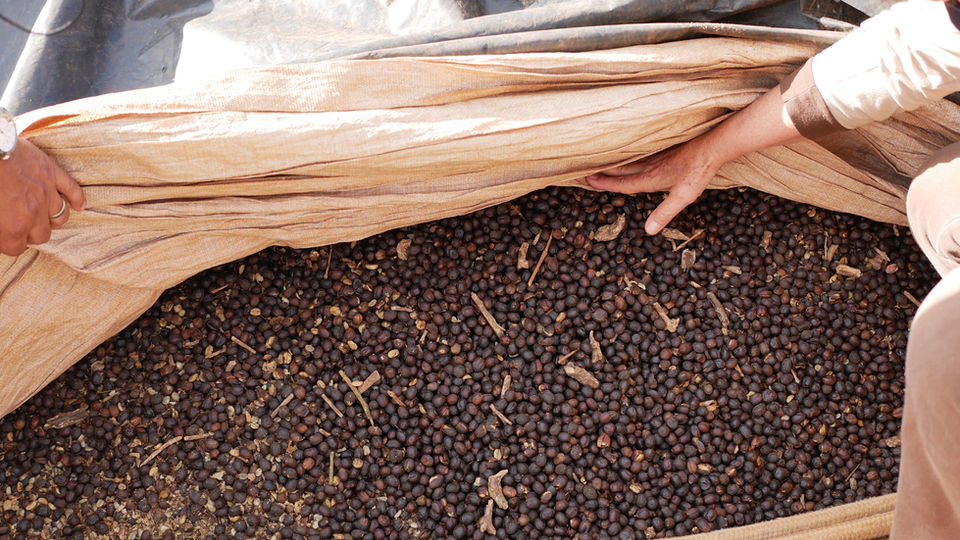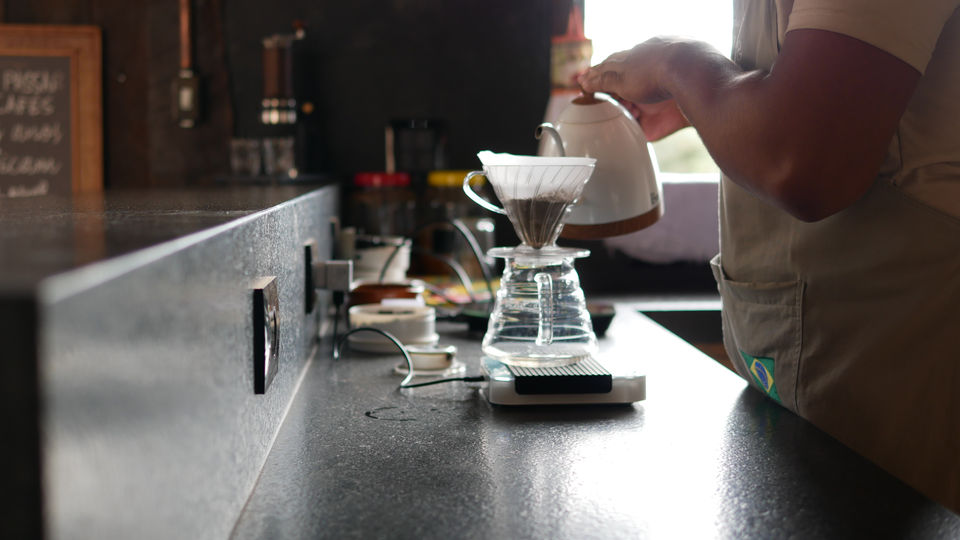
Caxambu e Aracaçu
Três Pontas - MG
Viver com ele e do que ele proporciona
Tudo começou há mais de cem anos, quando nossos avós começaram a escrever a história da nossa família nas Fazendas Caxambu e Aracaçu. Entre oito filhos, nossa mãe Ivone herdou a Fazenda Caxambu. Já casada com nosso pai Francisco José, descendente de uma família de proprietários de engenhos de cana-de-açúcar, iniciaram sua vida entre plantações de café e produção de leite. Logo depois, adquiriram a Fazenda Aracaçu, que na época pertencia a uma das irmãs de nossa mãe. Tiveram cinco filhos, e foi aqui que crescemos e aprendemos a viver como parte da natureza, respeitando-a como a grande provedora do nosso sustento.
Hoje, somos a terceira geração à frente da administração das fazendas, com a quinta geração já sendo preparada para, no futuro, assumir o negócio da família, que há muitos anos proporciona inúmeras oportunidades às pessoas que construíram suas vidas de maneira digna, saudável e justa, tendo o café como motor de todo o nosso desenvolvimento.
Fazendas Caxambu e Aracaçu:
Localizadas no sul de Minas Gerais, entre as montanhas sinuosas que desenham as paisagens do município de Três Pontas, a região é historicamente conhecida por sua próspera cultura agrícola, repleta de encantos e riquezas.
A Fazenda Caxambu recebeu o nome em homenagem à ancestralidade africana que se estabeleceu no Brasil nos primórdios. A palavra "Caxambu" significa "caixa de música", referindo-se aos tambores africanos amplamente utilizados pelas tribos locais da época como forma de comunicação. Esse legado permanece vivo na produção do nosso Afro Honey Coffee, um dos grandes destaques do nosso portfólio. O Afro Honey é produzido de maneira semelhante à "pisada das uvas" na produção do vinho: as cerejas de café são colocadas em barris de madeira e processadas ao som de tambores africanos.
Com 211 hectares, a Fazenda Caxambu conta com 120 hectares de cafezais, mais de 60 hectares de reserva legal e áreas de preservação permanente (APP), 13 hectares de pastagens e quase 10 hectares destinados ao processamento e preparo dos cafés.
Com altitudes que variam entre 1.150 e 930 metros, os cafezais se assemelham a um vasto tapete verde cobrindo as típicas montanhas mineiras, oferecendo ao mundo alguns dos cafés mais desejados, com nuances sensoriais únicas e inesquecíveis.
A Fazenda Aracaçu carrega a memória dos povos indígenas, cujos vestígios permanecem em nossas terras. "Aracaçu" significa "grande árvore que liga o céu e a terra". Essa conexão transcende o âmbito operacional e nos mantém continuamente sintonizados com uma dimensão espiritual, que sempre foi um forte alicerce para a nossa trajetória de trabalho.
Com um total de 170 hectares, a Fazenda Aracaçu possui 115 hectares de cafezais e 45 hectares de reservas e áreas de preservação permanente. É um verdadeiro berçário de nascentes, preservadas com respeito e responsabilidade por quem entende os princípios da natureza e sente profunda gratidão por ter em mãos uma terra tão sagrada.
Juntas, as duas fazendas formam um complexo de 380 hectares. Um manto verde que produz anualmente 9.500 sacas de café, atendendo à demanda dos mercados e consumidores mais exigentes do mundo, graças ao processamento criterioso e comprometido.
Sustentabilidade:
O foco das Fazendas Caxambu e Aracaçu está no presente, alicerçado nos eventos históricos e voltado para o futuro. A renovação contínua dos cafezais assegura qualidade, produtividade e melhorias nos processos produtivos — condições fundamentais para a sustentabilidade econômica do negócio, que, por sua vez, garante a realização de projetos socioambientais consistentes e essenciais para a preservação das atividades agrícolas.
Fatos da Fazenda
REGIÃO
Minas Gerais
SUB-REGIÃO
Sul de Minas
ENDEREÇO
Três Pontas - MG
ÁREA TOTAL
380 ha
235 ha (com café)
9.500 sacas de café por ano
ALTITUDE
930 m
1.150 m
PROCESSOS
Natural
Honey
CD
Camas Africanas
Terreiro ao Sol
Fermentados
VARIETIES
Bourbon Amarelo e Vermelho
Catuaí Amarelo e Vermelho
Icatú
Obatã
Arara
Novo Mundo
















